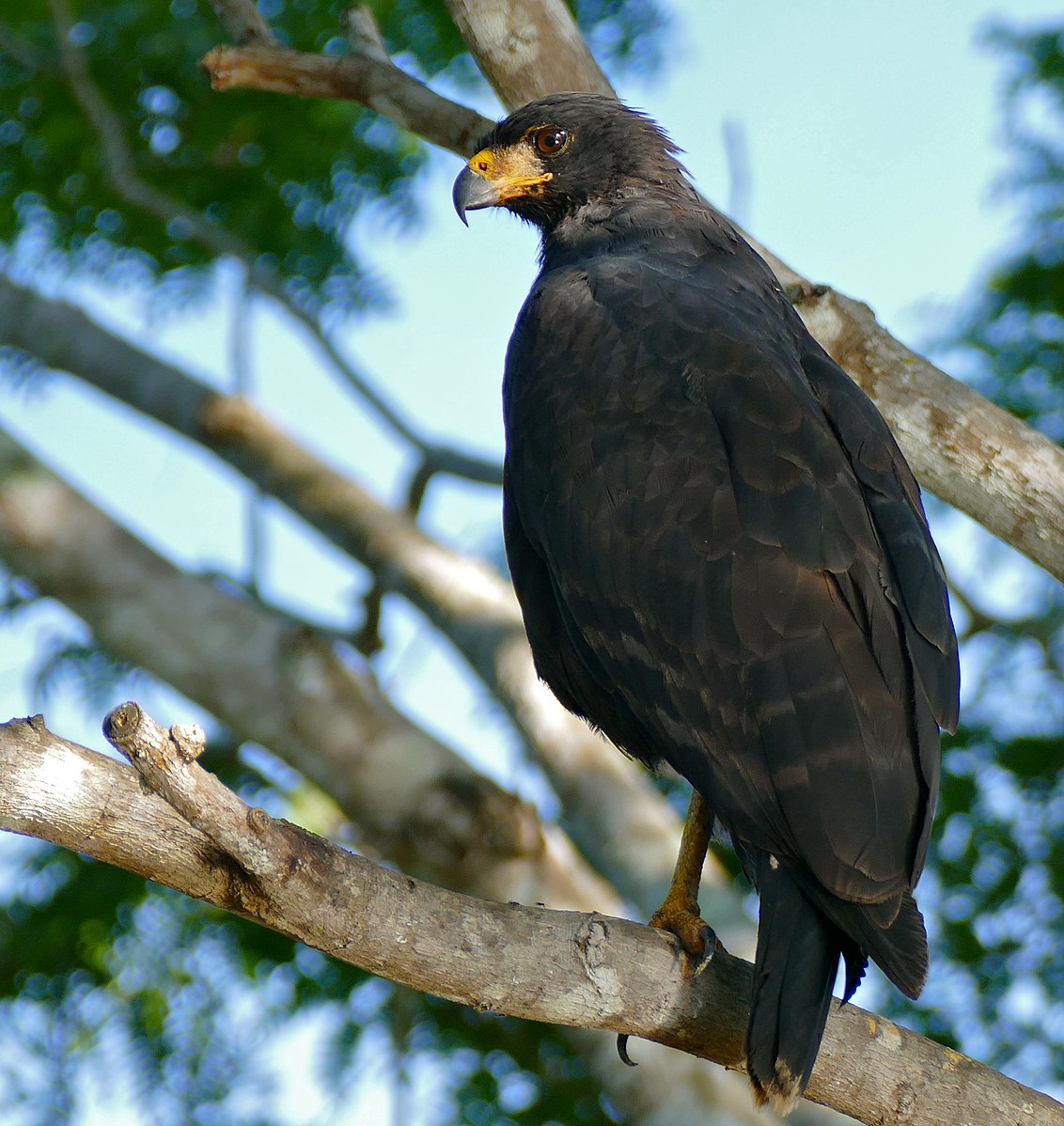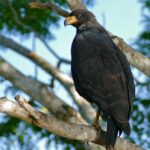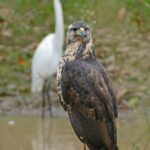Great black hawks, like most birds, are diurnal, meaning they are active during the day and rest at night. These majestic birds have evolved unique strategies to ensure they get the rest they need while remaining alert to potential threats.
Where Do Great Black Hawks Sleep?
Great black hawks typically find safe and sheltered places to roost for the night, such as:
- Dense foliage
- Cavities and niches in trees
- High in tree foliage
These roosting spots provide the hawks with protection from the elements and potential predators, allowing them to rest comfortably.
Unihemispheric Slow-Wave Sleep
 Image source: Great Black Hawk by Bernard DUPONT
Image source: Great Black Hawk by Bernard DUPONT
One of the most fascinating adaptations of great black hawks is their ability to engage in unihemispheric slow-wave sleep. This means that they can literally sleep with one eye open, keeping one half of their brain active while the other half rests.
This remarkable ability allows the hawks to remain vigilant and alert to potential threats, even while they are sleeping. By keeping one eye open and one hemisphere of their brain active, great black hawks can quickly respond to any danger that may arise during the night.
Nesting and Sleeping Habits
Great black hawks do not typically sleep in their nests unless they have eggs or chicks to care for. During the nesting season, the birds will sleep in the nest to provide their eggs or young with the necessary warmth and protection.
However, once the young birds are old enough to leave the nest, the parent hawks will also abandon the nest, no longer returning to it for sleeping purposes.
Adapting to Environmental Conditions
Great black hawks, like other birds, have the incredible ability to adapt their sleep patterns to their environment. For example, birds living near the poles, such as the Arctic Tern, may experience months of continuous daylight. During these periods, these birds seem to get very little sleep without suffering any ill effects.
Similarly, coastal wading birds that can only feed at low tide have evolved to sleep during high tide, when there is nothing useful for them to do, and wake up at low tide to feed, regardless of the time of day or night.
Perching and Sleeping
When great black hawks are perching and sleeping, they have a unique way of doing so. They will fluff up their feathers, tuck one leg up close to their body, and tuck their heads into the feathers on their backs. This helps them to keep warm and provides protection from potential predators.
Conclusion
In conclusion, great black hawks do sleep at night, but they have evolved remarkable adaptations to ensure they can get the rest they need while remaining alert and responsive to their environment. From their ability to engage in unihemispheric slow-wave sleep to their flexible sleeping habits, these birds are truly remarkable creatures.
References:
- Why do hawks avoid to fly at night? – Quora: https://www.quora.com/Why-do-hawks-avoid-to-fly-at-night
- Where Do Garden Birds Sleep At Night? | Home & Roost: https://homeandroost.co.uk/blog/where-do-garden-birds-sleep/
- Where Do Birds Sleep at Night? – Chirp Nature Center: https://chirpforbirds.com/wild-bird-resources/where-do-birds-sleep-at-night/
- Common Black Hawk | Audubon Field Guide: https://www.audubon.org/field-guide/bird/common-black-hawk
- Where do hawks sleep? – Hawkwatch at the Franklin Institute: http://sunnydixie.blogspot.com/2009/06/where-do-hawks-sleep.html?m=1


